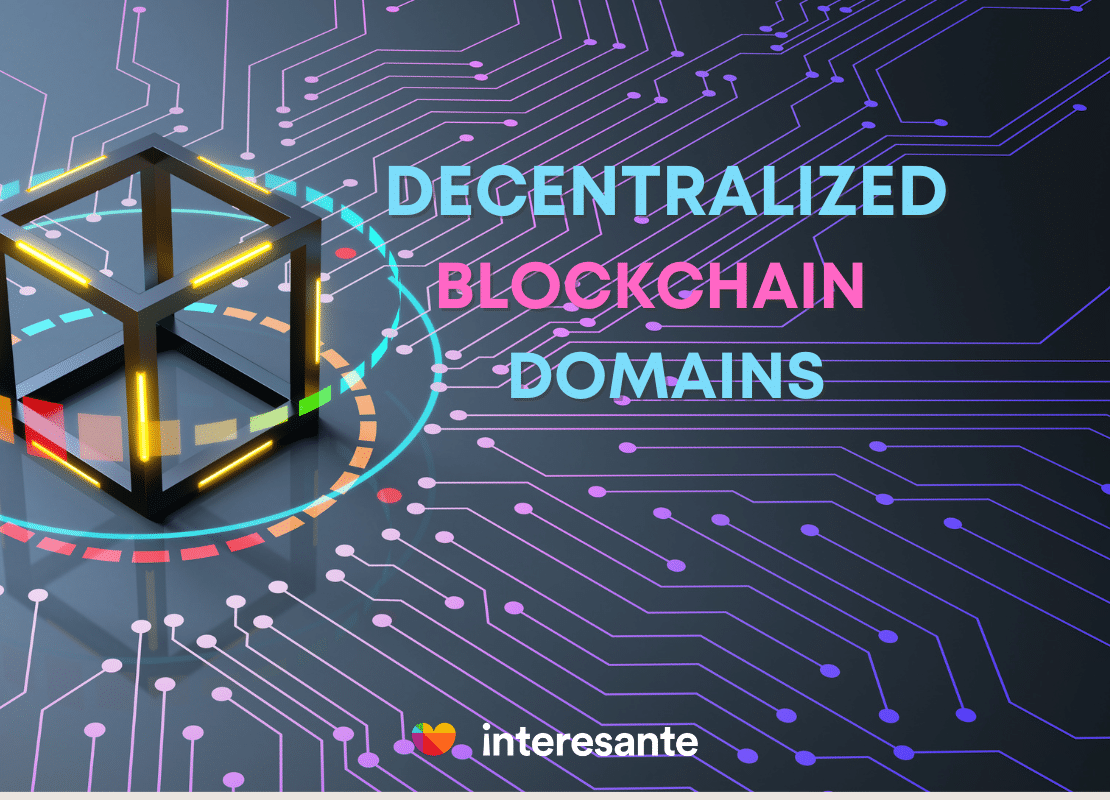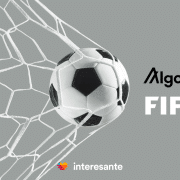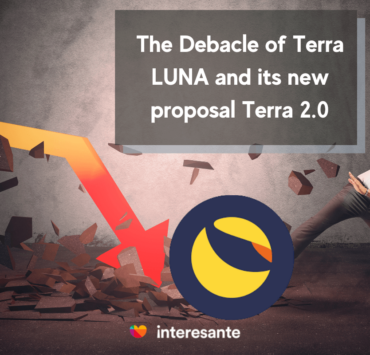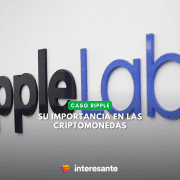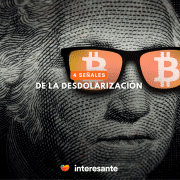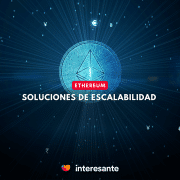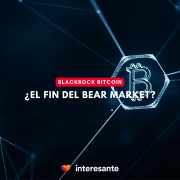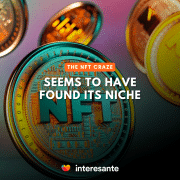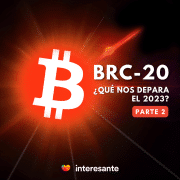AI Product Developer
Decentralized domains are alternative domains created to simplify cryptocurrency payments and build uncensored websites. They are like a traditional domain, but your information is stored on a blockchain.
How do Traditional Internet Domains Work?
Traditional web pages need servers to store information and an internet domain to connect it to the internet site.

Internet domains are addresses that can point to the content of a website. They are issued and controlled by ICANN, a centralized international organization that maintains the information of all web domains.
Traditional internet domains (DNS) are naming systems that work like an internet phone book; these connect an IP address like 192.168.100.1 to an easy-to-remember URL name, such as Interesante.com.
What are Decentralized Domains?
A decentralized domain is like a traditional domain, but your information is stored on a blockchain. These domains are built from smart contracts deployed on the blockchain and function like NFTs.
Decentralized domains have two fundamental characteristics that differentiate them from regular domains. First, they make it possible to simplify payments with crypto by replacing cryptocurrency addresses. These are encrypted codes with human-readable addresses. Secondly, they build censorship-resistant websites.
What Is their Function?
The role of decentralized domains is to simplify cryptocurrency payments and build censorship-resistant websites.
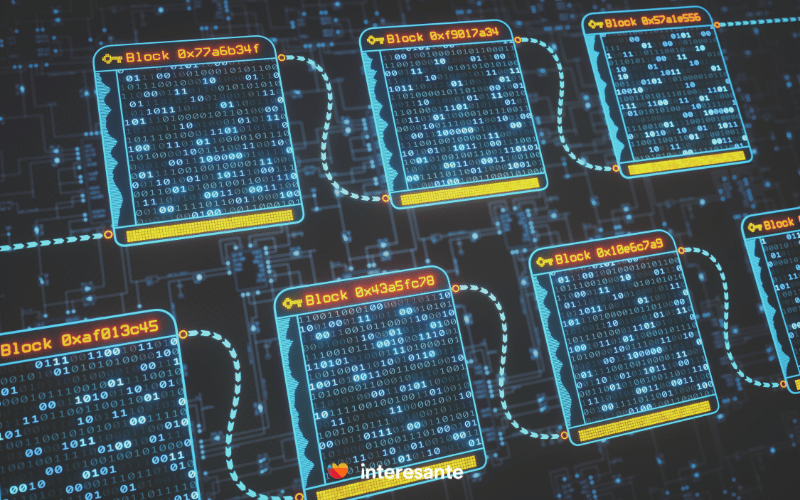
These domains simplify cryptocurrency payments: when a cryptocurrency goes from one digital wallet to another, it must include the amount and address. The addresses of the digital wallets depend on the blockchain with which they work. They are challenging to read since they are encrypted; they display a series of complex characters to remember.
Blockchain domains replace this string of characters with an easy-to-remember word with a suffix like ~.eth. For example, when someone types the blockchain domain «Interesante.eth» into a digital wallet, the wallet looks up the domain on the blockchain, finds the address the domain points to, and sends the cryptocurrency to the address associated with the domain.
With these domains, you can configure cryptocurrency addresses of different blockchains. You can configure a decentralized domain with an address of Ethereum, Bitcoin, Cardano, Cosmos, Algorand, and many more. The only thing needed is to configure the domain with a wallet of the blockchains allowed by the platform.
-
Algorand y FIFA+ son aliados en el Mundial Qatar 2022
Algorand, la blockchain con huella de carbono cero se une con FIFA como patrocinador oficial de las copas mundiales. Algorand ofrecerá asesoramiento técnico para los nuevos productos que FIFA lanzará en los siguientes años. Con un nuevo proyecto en mente, FIFA+, la asociación de fútbol más importante del mundo se adentra en el mundo de…
-
How startups can use blockchain technology
There’s no denying that blockchain technology is starting to disrupt almost every industry today. Startups can use it to their benefit.
-
Silicon Valley’s Quest To Decentralize The Internet
The Bay Area loves a crisis. It’s 2022, and the Valley is abuzz with decentralization and cryptocurrency chatter. Bay Area behemoths built with centralized data, such as Twitter, Salesforce, Facebook, Google, Apple, and others, append blockchain and crypto to their existing platforms in a hurry. Big Tech and startups race to be first-to-market with a…
Censorship-Resistant Decentralized Websites
Creating a decentralized website is more complicated since you have to configure where the website is stored and that the domain points to it when it comes to creating a decentralized website. Blockchain domains are not part of the traditional system but belong to alternative routes. These domains, being NFTs, are managed by users through their digital wallets; no one can move or modify them without the wallet’s private key.

Traditional websites store their content on centralized servers controlled by large companies. These companies can easily censor or block a website on government orders. On the contrary, it is possible to build uncensorable websites with blockchain domains and decentralized storage systems.
It works using a decentralized storage network like IPFS or Arweave. Decentralized servers store all the information on the website, and no one can censor your content.
With website information stored on a decentralized network, users can point their blockchain domain to this information, creating a censorship-resistant decentralized website.
How are Decentralized Websites Built?
Decentralized domains are built with smart contracts on the Ethereum network known as CNS (Crypto Name Service). Each CNS domain is issued as a token following the ERC-721 standard, better known as an NFT.
These domains are another application of NFTs in Web 3.0. This standard makes it easy for developers to integrate these domains into other applications, such as digital wallets, exchanges, and marketplaces.
Smart contracts involved in the CNS are the registration and resolution contracts. The registration agreement handles the creation of the crypto domains and their ownership. The owner is the only person who can manage the domain. On the other hand, the resolution contract translates the human-readable domain name to a cryptocurrency address.
Companies that Issue Blockchain Domains
The best-known decentralized domains are what is traded on the Ethereum network. Unstoppable domains and ENS (Ethereum Name Service) are two companies that offer decentralized domains on their platforms.
Unstoppable Domains offers domains with the following extensions: ~.crypto, ~.x, ~.bitcoin, ~.coin, ~.wallet, ~.nft, ~.888, ~.dao, ~.zil, and ~.blockchain. For example, satoshi.bitcoin or ethereum.nft. For its part, ENS only offers domains with the .eth extension.
The Unstoppable domains service is perpetual. Once the domain is purchased, it belongs to the user without any renewal. ENS, on the other hand, offers an annual domain subscription service.
Can Anyone Buy One?
Since decentralized domains are NFTs, all that is needed to purchase one is a digital wallet. You can buy ENS-issued domains with ETH, while for Unstoppable Domains, you can buy with credit/debit cards, PayPal, or cryptocurrencies such as BTC, ETH, USDC, or LTC.
The prices of Unstoppable Domains vary depending on the extension and number of characters. Fees range from 20 to 25 thousand dollars. Domains registered by ENS have a cost that depends on the number of characters.
Three-character domains are the most expensive, as there are fewer domains available. These cost $640 per year and are paid for with ETH. Above five characters, they cost $5 per year.
These prices do not consider the transaction fees paid when using the Ethereum network, which in many cases can be very high.
Adoption of Decentralized Domains
Decentralized domains offer many advantages for users who frequently transact cryptocurrencies. Their potential to build decentralized websites is also a feature that many people can take advantage of, although they do have many barriers to entry for the ordinary person.

In addition, there is still a significant barrier when creating these websites since it is difficult to break away from the traditional internet system. Accessing these websites is through search engine plugins, making access difficult for the typical user.
Still, the blockchain world is advancing by leaps and bounds; the adoption of cryptocurrencies is imminent. In the future, blockchain domains, combined with decentralized storage, could create an internet that no company or government will be able to censor, spreading freedom of expression around the world.
Updated on June 2, 2022, by Sarahy Uribe.
FAQ
Decentralized domains are like traditional domains, but all information is stored on a blockchain. They are built from a set of smart contracts deployed on the blockchain and function like NFTs.
Ethereum is known as CNS (Crypto Name Service). Each CNS domain is issued as a token following the ERC-721 standard, better known as an NFT.
The only thing needed to acquire one is a digital wallet. You can buy ENS-issued domains with ETH, while Unstoppable Domains with credit/debit cards, PayPal, and cryptocurrencies such as BTC, ETH, USDC, or LTC.
You can build uncensorable websites with blockchain domains and decentralized storage systems. They use a decentralized storage network like IPFS or Arweave. All the information on the website is stored on decentralized servers; no one can censor your content.
